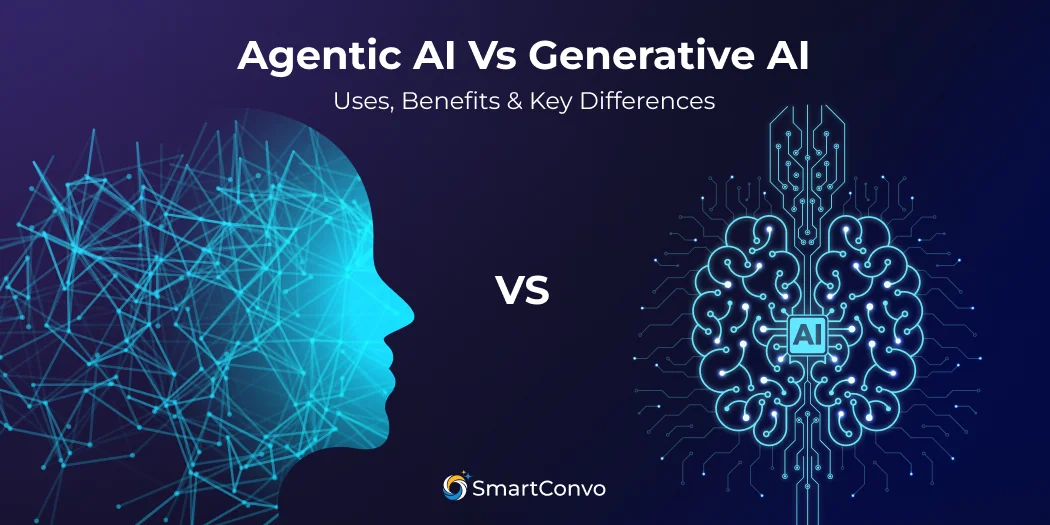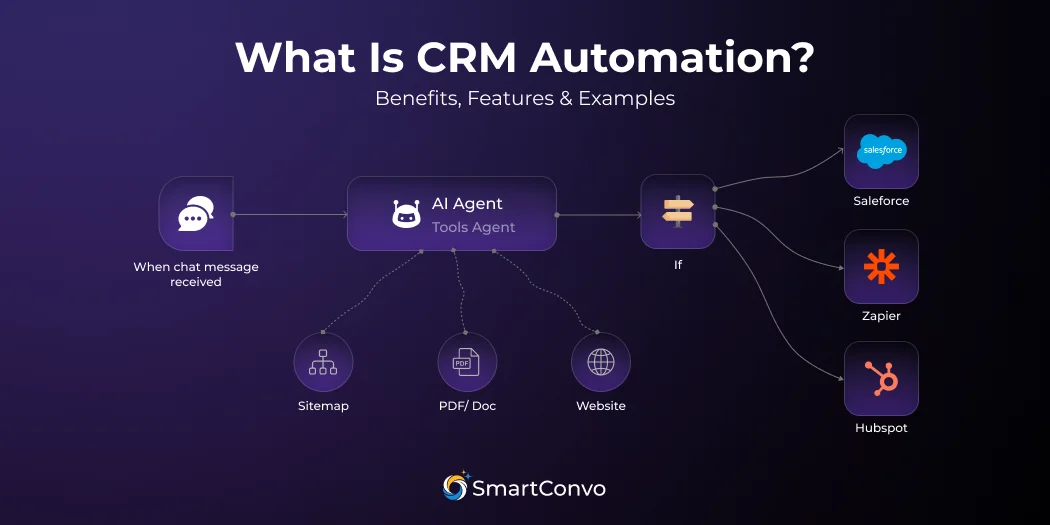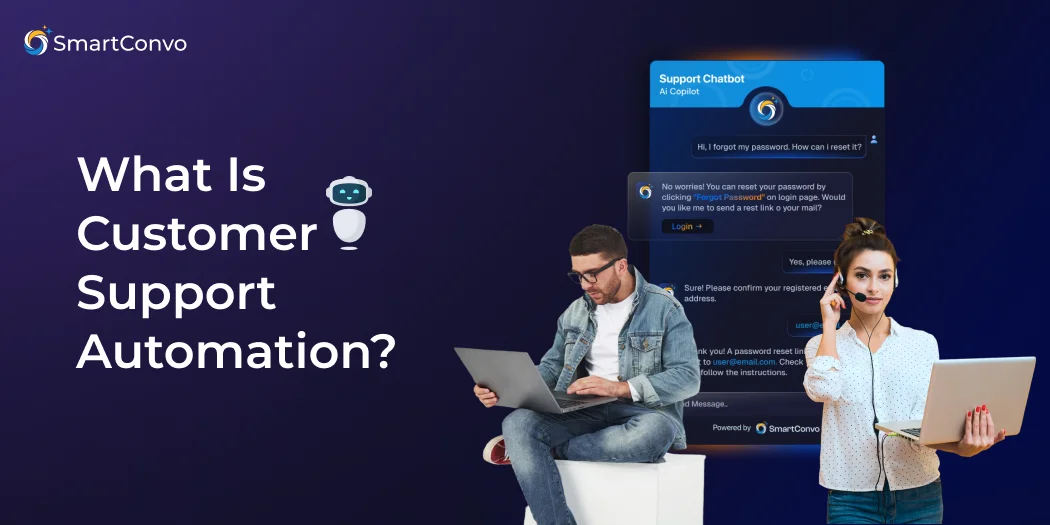Artificial Intelligence (AI) is no longer confined to science fiction—it’s a key driver of innovation in nearly every industry. However, as AI becomes more advanced, new subfields emerge, such as agentic AI, a term that has sparked curiosity among professionals, students, and tech enthusiasts alike.
But what is agentic AI, how does it work, and why is it significant? This guide will define agentic AI in simple terms, exploring its features, functionality, benefits, and real-world applications. By the end, you’ll not only know the agentic AI meaning, but also why it’s an exciting frontier in AI development.
What Is Agentic AI?
At its core, agentic AI is a type of artificial intelligence designed to operate autonomously in achieving predefined goals while interacting with its environment. This contrasts with simpler AI systems that respond only to direct commands or queries. Essentially, agentic AI behaves like a “thinking agent,” making independent decisions based on data, context, and desired outcomes.
Think of it as an upgrade from traditional Conversational AI for Sales or static chatbots, moving beyond predefined scripts to active decision-making and learning—much like how an AI copilot helps users solve complex problems independently.
Key Characteristics of Agentic AI
Agentic artificial intelligence has several defining features that enable advanced decision-making and adaptability in a variety of scenarios. Below, we explore its primary characteristics.
1. Autonomy in Decision-Making
Unlike regular AI systems that require human intervention, agentic AI can independently make decisions. It uses complex algorithms to weigh different factors and choose the most optimal path to achieve its goals, such as how a sales chatbot dynamically interacts with leads.
2. Goal-Oriented Behavior
Agentic AI works tirelessly to meet its objectives with precision and efficiency. Whether it’s optimizing a complex supply chain, streamlining operations to save time and costs, or handling intricate tasks like HR case management, this AI operates with a focus on delivering results.
3. Interactive Learning
Thanks to its ability to process data and learn, agentic AI evolves and adapts over time. By analyzing information from new environments or interactions, it continuously refines its decision-making and problem-solving abilities. For example, an LLM chatbot learns from previous conversations, user inputs, and feedback to provide more accurate and relevant responses in the future.
4. Environmental Perception
Agentic AI is designed to perceive, interpret, and act on environmental data, enabling it to make real-time decisions and adapt dynamically to new information. For instance, it could analyze fluctuating sales data in real time, identifying trends and providing actionable insights to businesses. Similarly, AI for business applications might adapt to changing customer needs
5. Ethical Reasoning
The most advanced forms of agentic AI chatbot attempt to include ethical decision-making, where actions are evaluated against societal or organizational norms to avoid harm (e.g., in sensitive fields like healthcare or HR knowledge management).
How Does Agentic AI Work?
To truly understand agentic AI meaning, we must examine the typical processes involved in its operation. Agentic AI operates in a cyclical manner, continuously improving as it performs four key functions:
1. Perceive
Agentic AI starts by gathering data from its environment, analyzing information from various sources to make informed decisions. Whether it’s customer queries in a helpdesk knowledge base, transaction histories in a financial database, or patient records in a medical database, the system carefully processes and evaluates the input.
2. Reason
Next, the AI processes the data, applying advanced models to determine the best course of action based on the context and input it receives. This involves breaking down complex information into actionable insights through algorithms designed to understand patterns and intent. For example, an HR chatbot must analyze employee queries, assess their intent, and decide how to respond.
3. Act
The AI executes its plan by taking actionable steps, which could involve sending timely alerts to notify users of potential issues, solving complex problems through data analysis and decision-making, or autonomously deploying tailored solutions to address specific challenges.
4. Learn
Finally, the system evaluates outcomes by gathering detailed feedback and analyzing performance metrics to identify areas for improvement. This ongoing process ensures the AI remains adaptable and responsive to changing needs, much like how generative AI integration enables systems to evolve and improve continuously.
Benefits of agentic AI

Agentic AI offers game-changing benefits that significantly enhance enterprise and organizational operations. Here’s a closer look at how it supports efficiency, decision-making, and adaptability.
1. Efficiency and Productivity
Agentic AI systems are designed to help streamline repetitive tasks, improving efficiency and saving time for both individuals and businesses. For example, AI chatbots with knowledge bases are a practical application of agentic AI, enabling faster user resolutions by quickly retrieving relevant information and providing accurate, context-specific responses.
2. Enhanced Support Operations
Agentic AI’s automated decision-making enhances efficiency across multiple operational areas, providing significant support in customer service and HR case management. By leveraging advanced algorithms, it works to resolve issues and streamline processes far more quickly and accurately than traditional methods.
3. Greater Flexibility and Scalability
Because agentic AI adapts to different use cases, it offers unparalleled scalability—whether managing a knowledge base for HR, streamlining processes like employee onboarding and policy management, or deploying document AI for knowledge management.
4. Data-Driven Decision Making
Agentic AI has the ability to process massive data sets at incredible speeds, transforming raw information into actionable insights that drive smarter decision-making. For instance, businesses can leverage insights from generative AI boosts workplace productivity data to identify inefficiencies and make informed changes. By analyzing patterns and trends, Agentic AI enables organizations to proactively adjust workflows
5. Adaptability
Unlike static AI models, agentic AI adapts in real-time to changing conditions, providing unmatched flexibility and responsiveness. This capability allows businesses to stay agile in dynamic environments. For example, need to quickly pivot your sales strategy in response to market trends or customer feedback? A well-trained AI sales chatbot can seamlessly adjust its approach.
Real-World Applications of Agentic AI

The power of agentic AI extends across industries, offering versatile solutions for complex challenges. Here are some key examples of its application.
1. Human Resources
From conversational AI in HR to HR knowledge management tools, agentic AI is transforming the way businesses manage their workforce. It supports employee engagement by providing real-time assistance and feedback, automates recruiting processes with intelligent candidate matching, and personalizes onboarding experiences to ensure new hires feel supported and prepared from day one.
2. Finance
Agentic AI is a powerful tool designed to analyze financial risks, flag anomalies in real-time, and forecast market trends with precision. By leveraging advanced machine learning algorithms, it empowers financial institutions to make data-driven decisions, optimize investment strategies, and enhance the effectiveness of fraud detection systems.
3. Healthcare
AI-assisted diagnostics, patient care recommendations, and advanced research analysis in healthcare rely on agentic capabilities to optimize treatments and outcomes. These technologies analyze vast amounts of medical data, identify patterns, and provide actionable insights to medical professionals, enabling more accurate diagnoses and personalized care plans.
4. Sales
Tools like conversational AI for sales are transforming the way businesses engage with customers by using adaptive tactics for highly personalized marketing strategies. These AI-driven systems analyze customer behavior and preferences in real-time, enabling tailored interactions that feel natural and relevant. By doing so, they not only improve conversion rates but also foster stronger, more meaningful customer relationships
5. Cybersecurity
Agentic AI enhances data protection by proactively identifying vulnerabilities in your system, thoroughly assessing potential risks, and effectively neutralizing threats before they can cause harm. By leveraging advanced machine learning algorithms, it operates faster and more accurately than traditional security systems, providing a robust and reliable shield against evolving cyber threats.
6. Customer Service
Beyond static chat interfaces, AI-powered service platforms are revolutionizing customer support by autonomously handling user issues, providing real-time assistance, and streamlining responses. They can extract actionable data insights to help businesses improve their services and even make empathetic decisions, enhancing user satisfaction. This highlights the wide-ranging benefits of AI chatbots
Challenges and Risks of Agentic AI

Despite its advantages, agentic artificial intelligence presents challenges that businesses must address before implementation.
1. Complexity
Developing and deploying advanced AI requires significant expertise, extensive research, and substantial resources. It involves assembling skilled teams of engineers, data scientists, and researchers, as well as investing in cutting-edge technology and infrastructure to ensure successful implementation.
2. Data Accuracy and Security
Ensuring data integrity is a complex task, especially with the growing risks of biases in data collection and analysis, as well as the ever-present threat of data breaches. Maintaining accurate, unbiased, and secure data requires constant monitoring, robust systems, and adherence to ethical practices to protect both the quality of the data and the privacy of individuals.
3. Explainability
Interpreting complex AI decisions remains a significant barrier, particularly for industries where transparency is critical, such as finance and healthcare. In these sectors, understanding how AI systems arrive at their conclusions is essential to building trust, ensuring compliance with regulations, and making informed decisions that could impact lives or financial outcomes.
4. Ethical Concerns
Agentic AI must align with societal norms to avoid ethical dilemmas and ensure fairness in its applications. For example, when using an HR chatbot for recruitment, it is crucial to prevent issues like biased decision-making or discriminatory hiring practices.
5. Cybersecurity Risks
Without proper protocols and safeguards in place, agentic AI systems may be highly susceptible to sophisticated cyberattacks, which could exploit vulnerabilities in their decision-making processes or data handling capabilities.
6. Maintenance
Regular updates are essential to maintaining an AI system that is both effective and ethical. These updates ensure the system adapts to new data, improves performance, and aligns with evolving ethical standards, helping to prevent biases and inaccuracies over time.
Best Practices for Deploying Agentic AI
To unlock agentic AI’s full potential, businesses should follow these key guidelines to ensure effective implementation and maximize its benefits
1. Start Small
Experiment with agentic AI in small-scale projects to evaluate its capabilities, effectiveness, and potential challenges before fully integrating it into your broader enterprise AI strategies. This approach allows for careful testing and adjustments, ensuring smoother adoption and better outcomes for your business.
2. Monitor Constantly
Track performance metrics regularly to identify trends, measure progress, and pinpoint areas for improvement. Use these insights to adjust settings or strategies as needed, ensuring continued success and optimal results over time.
3. Gather Diverse Data
Using diverse data sources ensures better decision-making and output quality by providing a more comprehensive and well-rounded perspective. When information is collected from multiple sources, it reduces bias, highlights different viewpoints, and enhances the accuracy and reliability of the conclusions drawn.
4. Prioritize Security
Establish robust security protocols to protect sensitive information, including implementing strong encryption, multi-factor authentication, and regular system audits to prevent unauthorized access and ensure data integrity.
5. Encourage Feedback
Integrating stakeholder feedback is crucial for enhancing AI performance and predictability, as it ensures the system aligns with real-world needs, addresses potential biases, and delivers more reliable outcomes.
The Future of Agentic AI
Agentic AI represents a groundbreaking advancement in technology, offering endless possibilities across a wide range of industries. This new frontier of artificial intelligence is designed to act autonomously, making decisions and performing tasks that were once thought to require human intervention. From delivering highly personalized customer experiences that drive engagement and loyalty to revolutionizing healthcare diagnostics with faster, more accurate results, agentic AI is transforming the way we innovate and solve complex challenges.
Businesses that embrace agentic AI now are positioning themselves as leaders in tomorrow’s competitive landscape. By leveraging its capabilities, companies can achieve higher efficiency, reduce operational costs, and maintain ethical integrity through transparent and responsible AI practices.
Additionally, agentic AI’s adaptive precision ensures it can respond dynamically to changing environments, helping enterprises stay ahead in an ever-evolving world. This is not just the future of technology—it’s the next step in reshaping how we live, work, and grow.
No Credit Card Required | 14 days Free Trial
Build Your Chatbot
Conclusion
Agentic systems bring profound efficiency to operations, helping businesses achieve goals faster while maintaining flexibility and adaptability. The potential of agentic AI to change industries like healthcare, finance, and HR is incredibly promising.
However, implementing agentic definition AI comes with responsibilities. From addressing ethical concerns to ensuring transparency and security, businesses must approach adoption in a structured and informed way.
If you’re an organization or individual looking to integrate AI for business, now is the time to explore tools and opportunities in agentic artificial intelligence. Start small, scale responsibly, and watch as agentic AI transforms your processes into efficient, adaptive systems.
Frequently Asked Questions (FAQ)
Agentic AI refers to artificial intelligence systems that operate autonomously to achieve specific goals using decision-making, learning, and interaction.
Agentic AI is autonomous, goal-oriented, and interactive, enabling it to evolve beyond static, preprogrammed AI solutions.
It finds applications in HR, finance, healthcare, cyber security, customer support, sales, and beyond.
Examples include advanced knowledge in AI systems, dynamic HR chatbots, and adaptable AI-powered sales assistants.
Begin small, leveraging tools such as AI chatbots with knowledge bases or LLM-based chatbots, and scale gradually with expert guidance.













